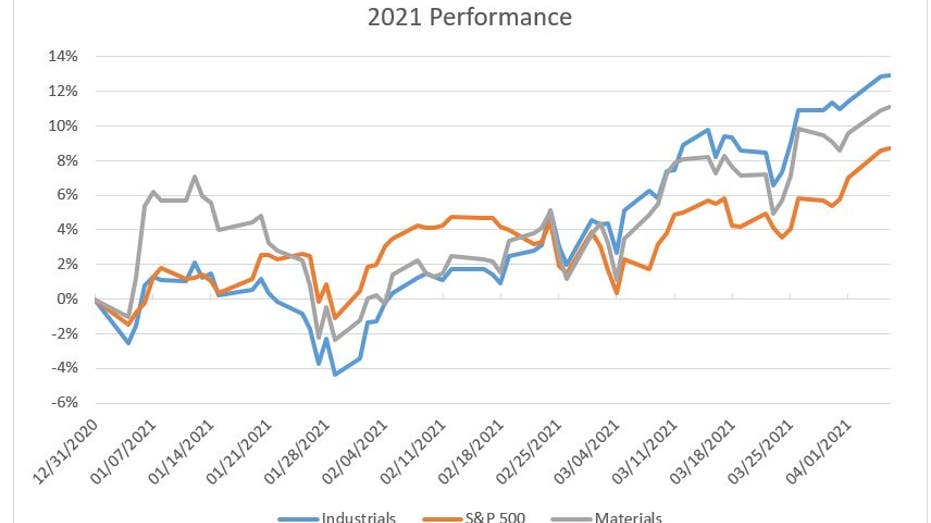
Investors are pouring money into the areas of the stock market that would benefit most from President Biden’s $2.25 trillion infrastructure package.
The industrial and materials sectors were the only two within the S&P 500 to see inflows last week, according to Bank of America. Materials saw $78 million of inflows and industrials had $19 million of inflows while the benchmark S&P 500 saw more than $400 million of outflows.
“We expect both [industrial and materials] to benefit from a pick-up in ‘picks & shovels’ capex — with room for inflows to continue after cumulative outflows in both sectors in 1Q and 2020,” wrote a team of Bank of America strategists led by Jill Carey Hall.

Additional inflows into the two sectors could further bolster what has been a strong start to 2021. Industrials have gained 13% this year, tied for third among S&P 500 sectors. Materials, meanwhile, are up 11% and are the fifth-best performing sector. The S&P 500 as a whole had gained 8.55%.
Biden’s proposal, dubbed the American Jobs Plan, would direct about $115 billion to modernize bridges, highways, roads and other main streets that are in most need of repair.
An additional $174 billion would go toward promoting electric vehicles and charging stations, $80 billion for public transit and another $80 billion for railroads.
Replacing lead pipes, expanding broadband access and modernizing schools are among the other projects included in the plan.
Biden proposes to pay for the outlays by raising the top corporate tax rate to 28% from 21% in addition to increasing the global minimum tax on U.S. companies to 21% from around 13%. President Trump’s Tax Cuts and Jobs Act of 2017 lowered the top corporate tax rate to 21% from 35%, which was among the highest in the world.
Democrats received favorable news on Monday from the nonpartisan Senate parliamentarian who ruled the infrastructure package could be approved through the reconciliation process, allowing them to avoid a Republican filibuster and pass the plan with a simple majority.
However, at least one key lawmaker has come out against the current proposal.
“As this bill exists today, it needs to be changed,” Sen. Joe Manchin, a moderate Democrat from West Virginia, said during a radio interview with Virginia Metro News on Monday. A defection by Manchin or any other Democrat would cause the measure to fail in the 50-50 Senate so long that Republicans hold their party line.
But passage in the U.S. House of Representatives could also prove problematic as a number of Democrats – including Reps. Peter Defazio of Oregon, Richard Neal of Massachusetts and Josh Gottheimer of New Jersey – have voiced concerns. The current makeup of the House, 218-211 in favor of Democrats, means only three Democrats can cross over to the Republican side.
“I think on the corporate piece, if it’s a nonstarter for the Republicans and it means we can’t get bipartisanship, I’m eager to hear their other ideas,” Gottheimer told The Wall Street Journal.





























